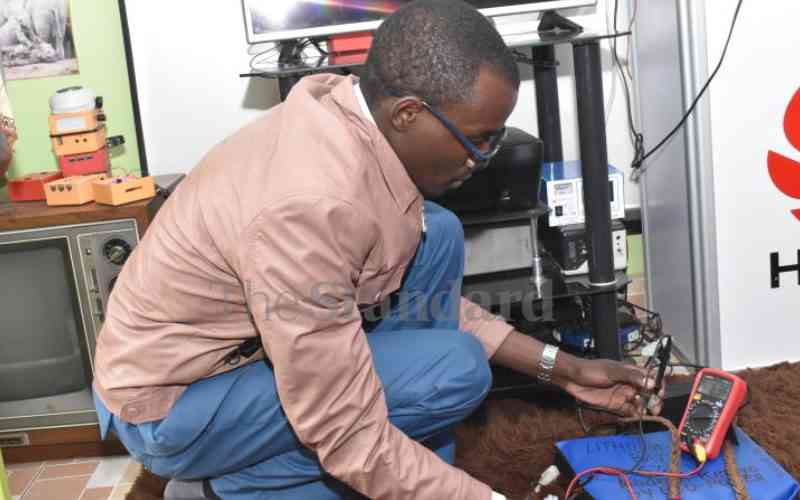×
The Standard e-Paper
Join Thousands Daily

Paul Waweru has always been disruptive since he was a child. This is not to say that he was an unruly child; rather, his disruption was the kind that would see him go on to achieve innovation.
Growing up in Ol Kalou town in Nyandarua County, Waweru was always interested in electronics, curious about how they worked.